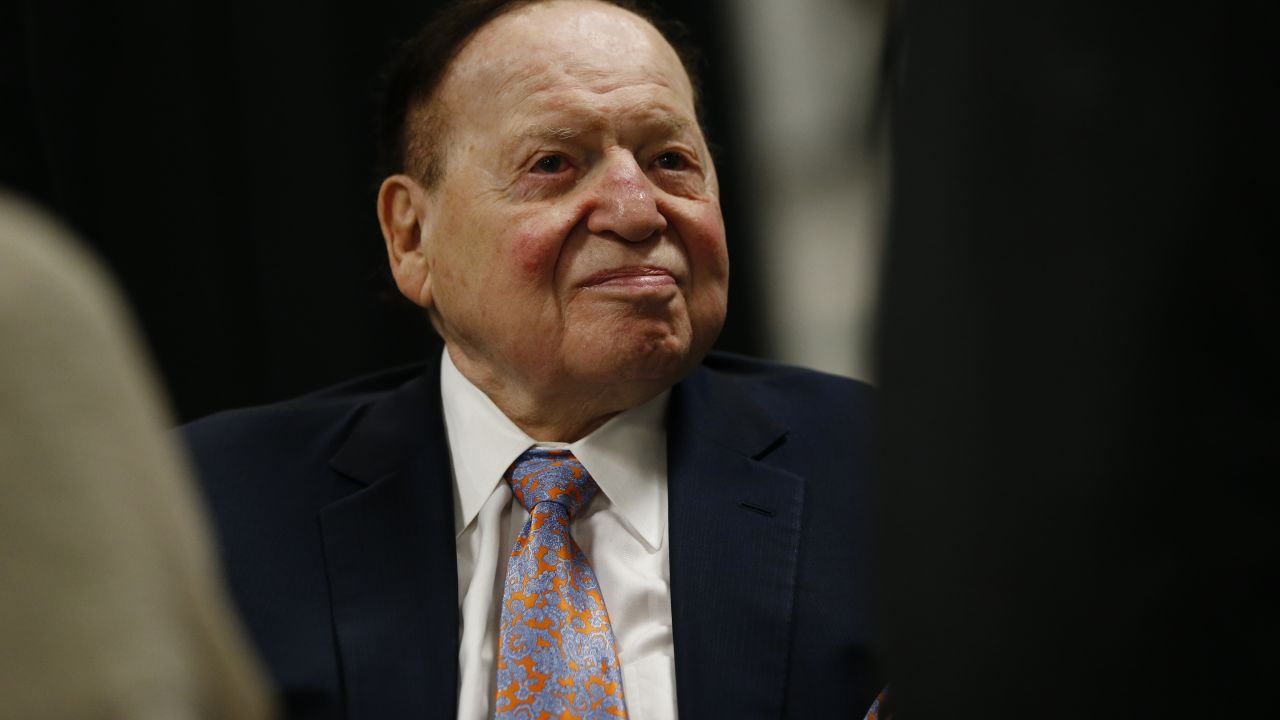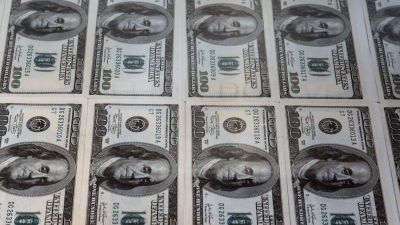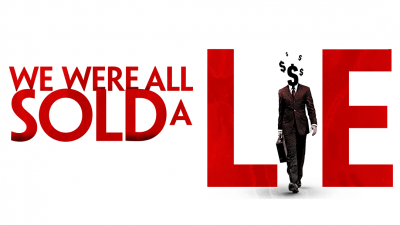
Sheldon Adelson, chairman and chief executive officer of Sands China Ltd., sits in the audience ahead of the first presidential debate at Hofstra University in Hempstead, New York, Monday, Sept. 26, 2016. (Photo by Andrew Harrer/Bloomberg via Getty Images)
We’ll be posting this roundup each week leading up to Election Day. Share your thoughts about these must-read stories and always feel free to suggest your own in the comments section.
THIS WEEK’S TOP STORY
In the last presidential debate, unprompted by the moderator, Hillary Clinton said that she wanted to appoint Supreme Court justices who “will stand up and say no to Citizens United, a decision that has undermined the election system in our country because of the way it permits dark, unaccountable money to come into our electoral system.”
But a newly appointed justice can’t simply stand up, on day one, and say “no.” A case will have to come before the Supreme Court first, and only then can justices begin to unwind the host of decisions, of which Citizens United is only one, that have allowed a flood of often untraceable money to swamp America’s elections.
Reform advocates have already begun to tee up challenges that could give a Supreme Court with a new majority an opportunity to rethink rulings like Citizens United and a lower-court ruling, SpeechNow v. FEC, which created super PACs. The battle is being waged on two fronts.
Read more »
QUOTE OF THE WEEK
— Advice from Republican fundraiser Lisa Spies to Trump’s team of fundraisers. Spies was responding to a question by The Washington Post’s Chris Cillizza: “Is there anything a professional fundraiser like you can learn from Trump and his fundraising approach?” Trump largely put a stop to his efforts to raise money on behalf of the Republican Party this week.
CAMPAIGN CASH SNAPSHOT
Figures for presidential and congressional races from the Center for Responsive Politics; figures for state races from the National Institute of Money in State Politics. All figures as of Oct. 27.
CHART OF THE WEEK
In this week after the third and final presidential debate, the Election Day outcome of the race for the White House looks pretty clear. Both parties are redirecting their resources downballot. For Clinton and her allies, that means bolstering attempts by Democrats to win the Senate as well as the much longer-shot (thanks, in large part, to gerrymandering) bid to capture the House. Republicans, meanwhile, are trying to hold on to their majorities in both chambers. On the front lines of the GOP offensive is the Senate Leadership Fund, a GOP super PAC that is spending big this month. Below, we take a look at its major donors — Sheldon Adelson and his wife, Miriam, clearly are invested in this fight — and the states in which the PAC is competing this month.
Fossil fuels are well represented on the list: Access Industries, which began with investments in Russian oil and gas and US petrochemicals, has morphed into a global conglomerate with holdings in entertainment, telecommunications and chemicals, among other things. Founder Leonard Blavatnik was born in the Soviet Union and emigrated to the United States. Though a US citizen, he last year was named the wealthiest person in Great Britain. He and his family have been active and strategic political donors, making more than $1 million in contributions over the years to a host of House and Senate candidates from both parties, according to records obtained from the Federal Election Commission.
STAT OF THE WEEK
$6.6 billion
That’s a “conservative estimate” of what this year’s election will cost at the federal level, according to the Center for Responsive Politics. If that estimate is correct, it will top the cost of the 2012 election by $86.5 million when adjusted for inflation. For what it’s worth, $6.6 billion is enough to pay 120,000 elementary school teachers their annual median wage of $54,890.
DONOR OF THE WEEK
The Kingdom of Saudi Arabia (again)
It’s not over: Days after Congress overrode Obama’s veto on a bill allowing the families of 9/11 victims to sue the sponsors of that terror — a move Obama warned would likely have wider, unintended consequences — members of both parties were wringing their hands with buyers remorse, wishing they could rescind their votes. Saudi Arabia, the likely target of these potential suits, hears you loud and clear, members of Congress! Isaac Arnsdorf reports for Politico’s Influence column that Saudi Prince Saud bin Khalid Al-Faisal has dispatched a top advisor to Washington for the purpose of “maintaining and strengthening commercial relations between Saudi Arabia and the United States,” and is asking US companies that do business with the Kingdom, such as Dow Chemical and General Electric, to put pressure on legislators. It looks as if there might be an opportunity to roll back the law post-election after all.
SOCIAL ENGAGEMENT OF THE WEEK
You could spend your Sunday night singing karaoke with Hillary Clinton’s head of development.
MUST-READS FROM HERE AND ELSEWHERE
- Hedge Fund Chief Uses Pay-to-Play Loophole to Put $500,000 Toward Pro-Trump Ads, by Lee Fang, The Intercept
- Wall Street Firms Make Money From Teachers’ Pensions — And Fund Charter Schools, by David Sirota, Avi Asher-Schapiro and Andrew Perez, International Business Times and Maplight
- Adelson gives $500K to Arizona group opposing pot legalization, Associated Press
- Dark money ads plunged when reporting requirement kicked in, by Ashley Balcerzak, Center for Responsive Politics




